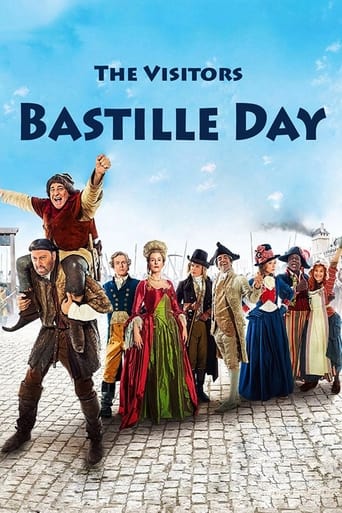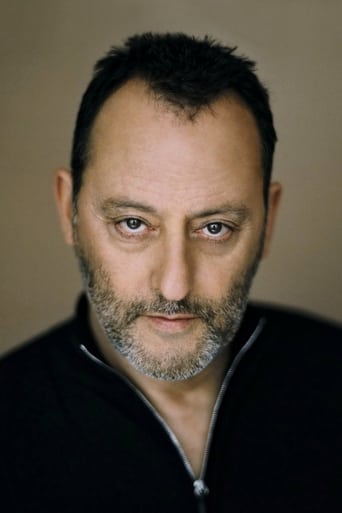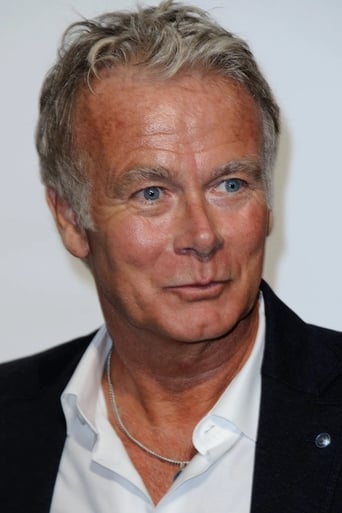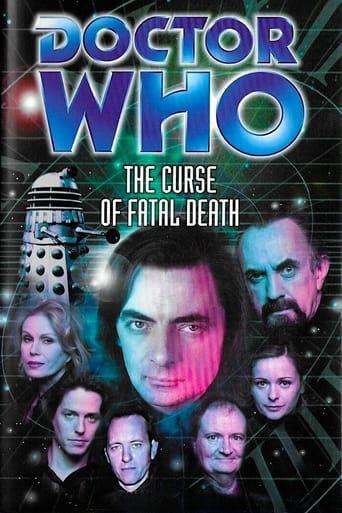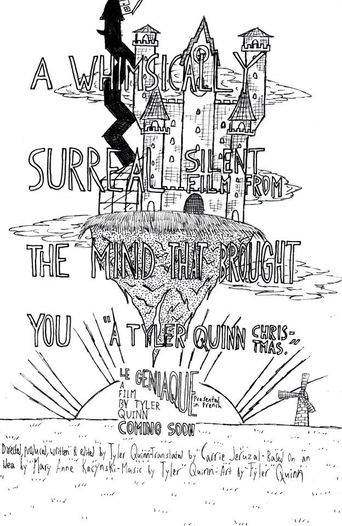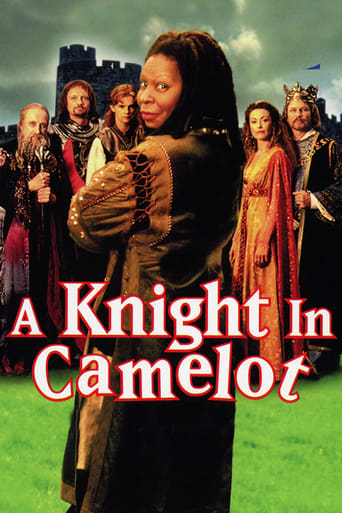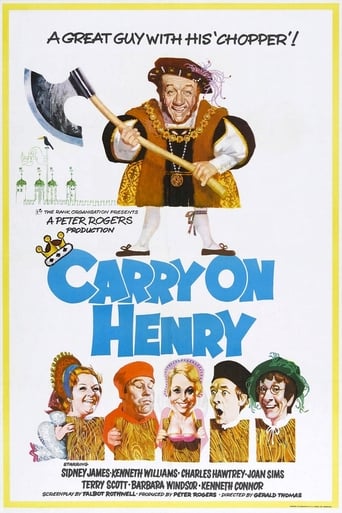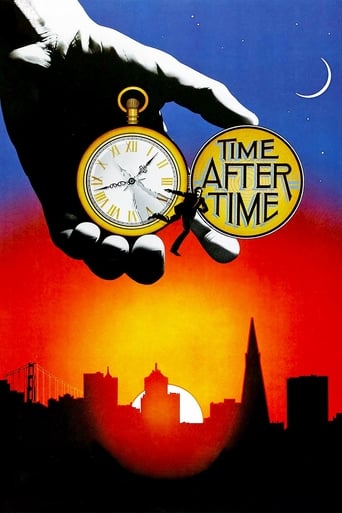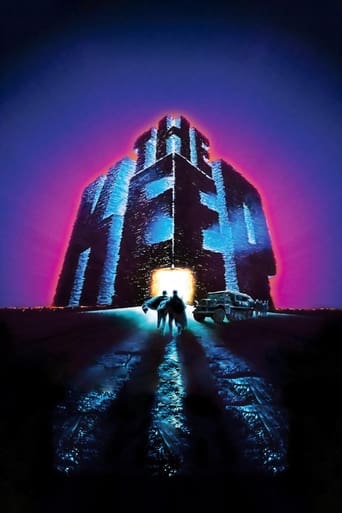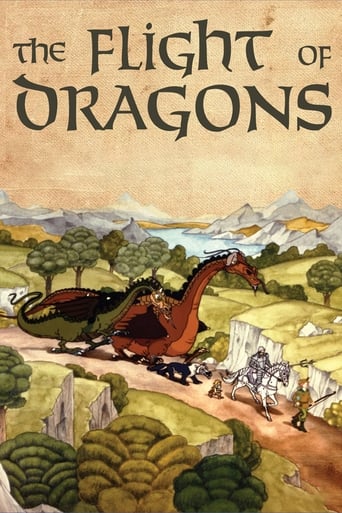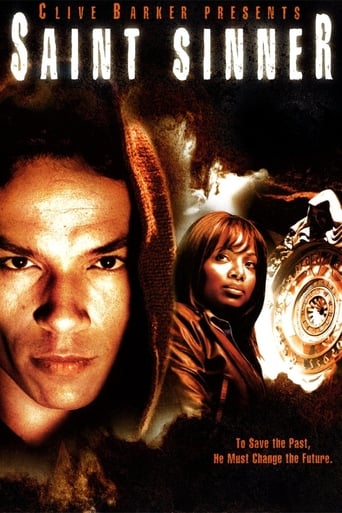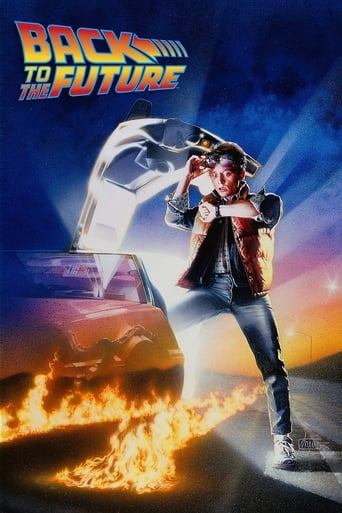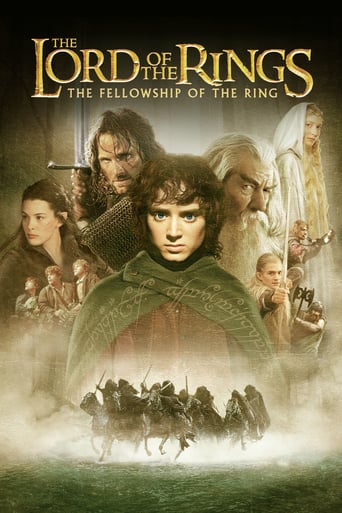The Visitors: Bastille Day (2016)
Stuck in the corridors of time, Godefroy de Montmirail and his faithful servant Jacquouille are projected to a time of profound political and social upheavals: the French Revolution... specifically, The Terror, time of great dangers, during which the descendants of Godefroy and Jacquouille had their castle and all their property confiscated by arrogant aristocrats, fleeing and lifes hanging by a thread.
Watch Trailer
Cast
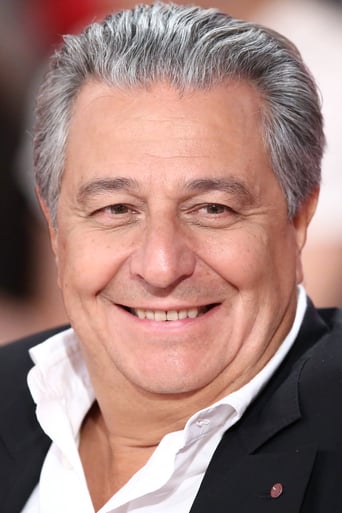


Similar titles
Reviews
How sad is this?
Blistering performances.
The acting in this movie is really good.
The film may be flawed, but its message is not.
In 1998, "The Visitors" saga concluded on a rather frustrating cliffhanger. Godefroy the Brave (Jean Reno) and his faithful servant Jacquouille (Christian Clavier) were, once again, misdirected in the corridors of time and left prisoners during the French Revolution. The film ended on a note that seemed to say "we don't care for continuity as long as there's a gag" (as if our beloved medieval characters in a cage would be a pleasing sight).Still, the film met with commercial success, but apart from the American remake (which I thought was better), it seemed like the director, Jean-Marie Poiré, the actors and certainly the spectators were done with "The Visitors". Until 2015 when the first teasers of two aging and uglier-looking Godefroy and Jacquouille made it clear that "The Visitors" would finally make a trilogy, how about that? On the positive side, I thought it was inevitable since they had to come back to their time. Besides, there was no way it could be worse than the sequel and maybe the writers' team made of Poiré and Christian Clavier had time to prepare an entertaining and funny story that wouldn't rely on cheap jokes and special effects. On the other hand, I was afraid the film would be an attempt to give a 2010's flavor to the series by inserting so many 'trendy' stars (the casting of bankable Frank Dubosc and Ary Arbittan didn't reassure me). But I didn't have time to set up my anticipations as the first negative signals started to ring: no premiere, the Press couldn't watch the film before the release, talk about self-confidence. And then came the (vengeful?) critics: a cinematic disappointment with an overuse of poo-poo jokes, an insistence on bad smell even more incongruous in the unhygienic context of the Revolution. More constructive critics denounced the disjointed aspect of the scenario, the overdose of artificial lighting to suggest night and the wooden acting of Reno who seemed more absent than usual. But the criticism that worried me the most was that: the film had no end. Whatever it meant, it really set my worries high and my expectations low, very low. The start was promising though with the summaries of the previous films crawling à la "Star Wars", I didn't expect to smile so early. Then we're put in the Middle-Ages, paler and more pastel tones than in the first films, Godefroy and Jacquouille make a spectacular yet confusing entrance, since they're supposed to be in 1793. Indeed, it was all a dream by one of the soldiers. Later, the King orders them to find Godefroy, otherwise, his lands will be taken and he'll have no descendants. Why did they bother with that subplot since Godefroy had a mission already? As uninspired as it was, Godefroy was supposed to come back, marry Frénégonde, give her some sacred relic and close the corridors of time to prevent the plague. No continuity isn't such a big deal, but so early, it makes you expect the worst.But I guess, I've been so thoroughly prepared for this worst that as long as they were not shown defecating on the screen or farting on others' faces, it was okay. At the end, it wasn't too bad. Actually, I've been even pleasantly surprised that the film contained more restrained part than the sequel, moments full of verbal interactions about the Revolution, classes, human rights and other 'hip' stuff, that and a great dinner scene with Robespierre (played by a chilling Nicolas Vaude). It's true the two protagonists were left behind for a while, but at least the film remained consistent with its subtitle.And while there were a few nice nods to the original film: Marie-Anne Chazel in the cast, Godefroy being again mistaken for a distant cousin and so forth, it is true that the film insisted upon itself when it came to the smell and fecal jokes, even lengthy conversations were on the same register, like one between between the Brave and a pompous Italian aristocrat played by Arbittan, something about the honor to wipe the Royal ass. Ten seconds is the limit to maintain such a joke, but the film gratifies us with so many references to odors or feet, that it almost spilled over the script. It came to a point I was breathing heavily when Jacquouille had to serve a chocolate pie to Marat. But on a more positive side, I liked the way this film connected with the first where 'Revolution' was a preeminent theme, one that even inspired Jacquouille to stay. It also showed his descendant, one of Robespierre's under-bosses, taking his former masters' land, thus starting his family's fortune. Even Dubosc, more restrained than usual, shone as Gonzague de Montmirail, referenced many times in the first. The others Montmirails were not foils for Clavier's antics, and happened to be so interesting that we didn't need Godefroy and Jacquouille on screen. Indeed, they provided great insights about the revolution from their own standpoint. They're the refugees and citizens, from the people, are eager to denounce them for money.When you know the historical weight of 'denunciation' in France, the film doesn't quite honor the Revolution. And who knows maybe this revisionism appaled the oh-so republican press, who branded the film as reactionary. But it was gutsy to have such a taboo-breaking approach, it just get diluted in too many jokes and twists that the film inevitably failed to deliver its premise. Worse, it indeed didn't have time to end, and what could have been a terrific redeemer made it worse. Even as a joke, the ending could have worked, but the film suffers from the eternal syndrome of French comedy: rushed ending.The ending (or lack of) wasn't without a meaning, and a strong one, but I wish they had time to rework the film, a few scenes cut, a few adds, it could have been something.
I've seen it with my daughter 12 April 2016 in a little country's cinema with no publicity (cool). (In France) What could we expect more than what we've seen ? Nothing, so that's a good film. We laughed all along the film. It's a comic film ! Story is good, actors play well. Frank Dubosc is very good as usual. Music is the same as the 1st film (Era). Colors and garments are beautiful. It's a well made film, it lasts 120 min, and it's not long. I don't know what it could be if traduced in other languages ? In fact, there are lots of jokes on the older french language. I hope the 4th film should be soon, in 1942 during WWII in France in Montmirail's castle ! We've seen the 4 films (add the version for USA, Visiteurs in America). So 7/10, no more, no less. I read the critics and i think they're cruel. Sincerely Emmanuel (from France)
-Les Visiteurs 3: La Révolution is a film franco-belgian tchéco of Jean Marie Poiré delivered in 2016.-It is the third opus of the trilogy Les Visiteurs; it is the sequel to the second opus Les Couloirs du temps : Les Visiteurs 2 ,eighteen years after the production of the latter, in 1998, and twenty years after that of the first film, in 1993. He puts in scene the duo of characters of the first two films, the Duke Godefroy de Montmirail (Jean Reno) and his squire Jacquouille la Fripouille (Christian Clavier), but also new protagonists interpreted by Franck Dubosc, Karin Viard, Sylvie Testud, Ary Abittan, Alex Lutz, Pascal Nzonzi and Marie Anne Chazel.-The film is produced by Sidonie Dumas, general director of Gaumont, the Belgians Sylvain Goldberg and Serge of Poucques for Nexus Factory, Christian Clavier for his production company Ouille productions and by Jean Marie Poiré. In addition to the performance and the production, Poiré is also co-author of the scenario with Christian Clavier, as was the case for the first two films.-Only three actors from the previous two movies play in this third opus, namely Christian Clavier, Jean Reno and Marie Anne Chazel; unlike Reno and Clavier, Marie Anne Chazel embodies not the same character than in the other films.-Filmed from April to June 2015 in the Czech Republic and then in Belgium is the film with the remake Les Visiteurs and Amérique (2001), the second film in the series have not taken place in France. The film is also back to the realization of Jean Marie Poiré, after an interruption of almost 14 years.--Criticism: -The press is not allowed to watch the movie in avant-premiere by fear of bad reviews, the only two projections for press to be reserved for a part of the media TV and radio, less critical reassessment. The Gaumont should be aware of the mediocrity of the film will enter into force on the buzz and the wait before the nostalgi dart elend in the room. In short, the press vibrates the film to its outcome, it reassessment 'laborious", "average" and "dated". According to Mathilde Cesbron, journalist on Point, the film "is nothing more than a vague soup lette and old-fashioned, which even lady Ginette nothing of would like to", with a plot a minima, humor on the discount, a social criticism non-existent, a Jean Reno is non-existent and a Christian Clavier who plays on.
18 years. This is the time the french audience has awaited to finally open its twinkling nostalgic irises on the sequel of the second opus, "The visitors II, The Corridors of Time". Considered as the french "Monty Python and the Holy Grail" tinted with the complex and fanciful theme of time-travel as in the "Back to the Future" series,our two medieval heroes had been left to the time of the French Revolution after gulping down a gut-twisting magic potion blended thoughtlessly with Grand-Marnier, thus altering the effects.The third opus uses the maneuvers which have made the films cult: misunderstanding between characters of different epochs, funny repetitive cues from Jacquouille,incongruous props,crude humour in reference to personal hygiene... Unfortunately the rhythm is hardly sustained. The characters' caricatures are shy next to the famous duo and even though the encountering characters are historically closer (Middle Ages vs Early modern Period)than in the previous episodes(Middle Ages vs Contemporary 1992), the social gaps are not exploited enough, consisting mostly of already-used jokes. How flat is the use of situation comedy which provided the previous productions with such a relentless succession of bemusing sidesplitting circumstances! The comedy of manners is intelligent in not being one-sided, we see the non-aristocrats wallowing in the luxury and advantages recently seized from the aristocracy.The movie is however a real delight for its respect of history and historical figures, the costumes-alluding to the fantasy of the time-and the settings shot in Belgium are beauteous.The script holds well even though the last 20 minutes were a bit sped up compared to the sluggish diner scene with an interest centered more on including historical characters than spurting out-of-control developments like the one in the first movie. The development is actually different, there is less come and go between time periods (except the end)while Godefroy and Jacquouille are endeavoring to survive and find the key to unlock the padlock of time, id est the wizard and the magic potion. This choice might be sacrificing a potential source for jokes, but it has the advantage of focusing the lorgnette's lens on an era with all its subtleties, while framing the script to make it perfectly consistent. Fans of the genre will appreciate the fast straight-to-the-point editing proper to Jean Marie Poiré, the director, and the same original soundtrack by Eric Lévy in tune with the compositions of Felix-Mandelssohn Bartholdy (Violin concerto in E minor, Op 64). Some patching-up had to be done considering some elements in the previous films, some actors were not included either because their role was not fitted in the story (Christian Bujeau as Jean Pierre-Goulard the husband, Valérie Lemercier or Muriel Robin as Béatrice de Montmirail...) and some were replaced (Pierre Vial as Eusebius the wizard, Didier Pain as Louis VI le Gros...) considering the particular case of the absent-minded wizard threatened to be immured in case of the no-return of the knight and squire. In "Les visiteurs: La Révolution", while we are shown the macabre fate he underwent, we are acquainted with a new replacing character kinshiply related, that sort of ellipsis, though respectful to the previous scripts, would have needed additional clarifications for the audience less comfortable with the entire storyline. Watchers will notice the physical changes of the two main actors after 18 years, an observation which has cleverly been dealt with in the movie as being a consequence of time travel accelerating the process of aging.Regarding the dialogs, we do not find the same richness of language in old medieval french as before, yet we discover 18th century expressions and the clash between the two is made good use of. Additionally, we pleasurably witness the practice of wit in a dialogue of hypocrisy when Karin Viard as Adélaïde de Montmirail resorts to her charms to obtain the most and give the less to a well-off blue blood. Eventually, any film with our two star-crossed visitors includes a twist and an unresolved plot at the end. As a faithful sequel, amateurs of the genre can joyfully consider the possibility of a fourth movie with the hope that the story does not go too worn-out. With a similar focus on history and script, Poiré and Clavier will really have to reinvigorate the comical foolhardiness they were able to adapt to the screen years ago if they want to end the series successfully.

